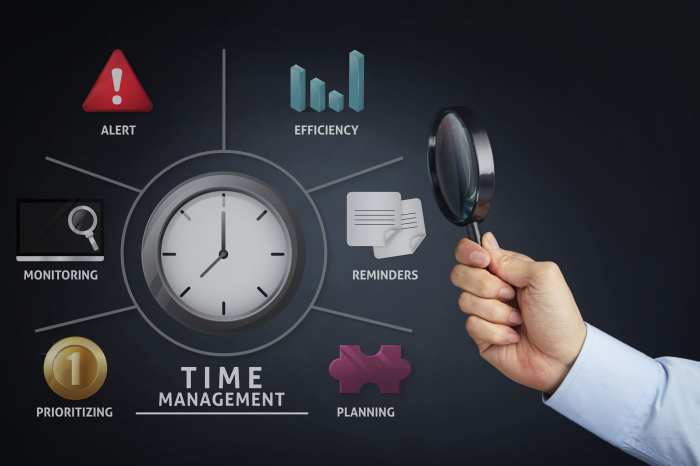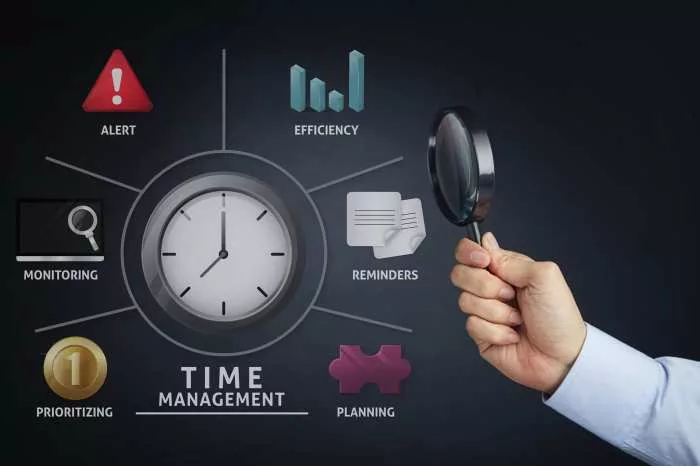Welcome to the realm of best time management apps, where efficiency and organization converge. With the plethora of options available, finding the perfect app to suit your unique needs can be daunting. This guide will navigate you through the key features, functionalities, and considerations to help you make an informed choice and unlock your productivity potential.
Time management apps have revolutionized the way we plan, track, and execute our tasks. They offer a comprehensive suite of tools that cater to various aspects of productivity, including task management, time tracking, habit formation, and project planning.
Popular Time Management Apps: Best Time Management Apps
In today’s fast-paced world, effective time management is crucial for productivity and success. With the advent of technology, numerous time management apps have emerged to help individuals and teams streamline their schedules, stay organized, and accomplish their goals.
Here are some of the most popular time management apps available:
Top Time Management Apps
- Google Calendar:A comprehensive calendar app that integrates with other Google services, such as Gmail and Drive. It allows users to create events, set reminders, and collaborate with others.
- Todoist:A task management app that offers a variety of features, including task lists, subtasks, priorities, and reminders. It also provides integrations with other apps and services.
- Trello:A project management app that uses a Kanban-style interface. It allows users to create boards, lists, and cards to organize tasks and track progress.
- Asana:A work management platform that combines task management, project tracking, and team collaboration features. It provides a centralized platform for teams to manage projects, assign tasks, and communicate.
- Evernote:A note-taking app that can also be used for time management. It allows users to create notes, organize them into notebooks, and set reminders.
- Toggl:A time tracking app that allows users to track the time spent on different tasks. It provides insights into time usage and helps identify areas for improvement.
- RescueTime:A time management and productivity app that tracks time spent on different websites and applications. It provides reports and insights to help users understand their time usage patterns.
- Forest:A unique time management app that uses a gamified approach. It encourages users to stay focused by planting a virtual tree. If they stay focused, the tree grows; if they get distracted, the tree dies.
- Freedom:A website and app blocker that helps users stay focused by blocking distracting websites and apps. It allows users to set time limits and create schedules for blocking.
- Habitica:A habit-tracking and task management app that gamifies productivity. It allows users to create tasks, track habits, and earn rewards for completing them.
App Features and Functionality

Time management apps offer a wide range of features and functionalities designed to enhance productivity and organization. These features include task management, time tracking, calendar integration, project planning, and collaboration tools.
Task management features allow users to create, prioritize, and track tasks. They can set deadlines, assign tasks to team members, and track progress. Time tracking features enable users to monitor how they spend their time, identify areas for improvement, and optimize their schedules.
Calendar Integration
Calendar integration is another essential feature of time management apps. It allows users to view their appointments, meetings, and tasks in one place. This helps them avoid double-booking and ensures that they are always up-to-date on their commitments.
Project Planning
Project planning features help users break down large projects into smaller, more manageable tasks. They can create timelines, assign tasks to team members, and track progress. This helps them stay organized and on track, even when working on complex projects.
Collaboration Tools
Collaboration tools allow users to share tasks, documents, and notes with team members. They can also communicate with each other in real-time, which helps to streamline communication and improve productivity.
App Design and User Interface
The design and user interface (UI) of time management apps play a crucial role in their effectiveness. Well-designed apps with intuitive navigation and visually appealing interfaces make it easier for users to stay organized and productive.
Popular time management apps often employ a clean and minimalistic design aesthetic, prioritizing functionality over flashy graphics. They typically feature a straightforward layout with clear menus and easy-to-access features. This allows users to quickly find the tools they need without getting overwhelmed by clutter.
Navigation
Navigation is another important aspect of app design. The best time management apps offer seamless navigation, allowing users to easily switch between different sections of the app without losing their place. This is achieved through a combination of well-placed menus, breadcrumbs, and keyboard shortcuts.
Visual Appeal
While visual appeal is not as crucial as functionality, it can still contribute to the overall user experience. Time management apps that use vibrant colors and eye-catching graphics can be more engaging and motivating for users. However, it’s important to strike a balance between aesthetics and usability, ensuring that the design does not interfere with the app’s functionality.
Recommendations for Improving User Experience
- Prioritize simplicity and clarity in design.
- Use intuitive navigation to make it easy for users to find what they need.
- Incorporate visual elements to enhance engagement without compromising functionality.
- Gather user feedback to identify areas for improvement and enhance the app’s overall usability.
Integration and Compatibility
Integration and compatibility play a crucial role in the effectiveness of time management apps. By seamlessly integrating with other productivity tools and platforms, time management apps can extend their functionality and streamline workflows.
Best time management apps offer a range of features to help you stay organized and productive. One essential feature is a shareable calendar app , which allows you to collaborate with colleagues, family, or friends. This ensures that everyone is on the same page regarding schedules, appointments, and deadlines.
By integrating a shareable calendar app into your time management toolkit, you can streamline communication and enhance overall productivity.
For instance, integration with calendar apps allows users to automatically import scheduled events into their time management app, ensuring that all appointments and deadlines are captured and accounted for. Similarly, integration with task management apps enables users to create and manage tasks within the time management app, eliminating the need to switch between multiple applications.
Cross-Platform Compatibility
Compatibility with different devices and operating systems is another important consideration. Users need to ensure that the time management app they choose is compatible with their preferred devices, whether it’s a smartphone, tablet, or laptop. Cross-platform compatibility allows users to access their time management data and functionality seamlessly across multiple devices.
Pricing and Value for Money
Time management apps offer various pricing models to cater to different budgets and needs. Understanding these models and evaluating the value for money offered by each app is crucial for making an informed decision.
Pricing Models
Freemium
Offers basic features for free, with additional features available through paid subscriptions.
Subscription
Charges a monthly or annual fee for access to all features.
One-time purchase
Pays a one-time fee for lifetime access to the app.
Value for Money, Best time management apps
When assessing value for money, consider the following factors:
Features and functionality
Determine if the app offers the features and functionality that align with your specific needs.
Effectiveness
Evaluate the app’s ability to help you improve time management and achieve your goals.
User experience
Consider the app’s ease of use, design, and overall user experience.
Recommendations
- For a budget-friendly option, freemium apps provide basic features without financial commitment.
- If you require advanced features and comprehensive functionality, subscription-based apps offer a wider range of options.
- For a one-time investment, consider one-time purchase apps if they meet your specific needs and offer lifetime access.
Ultimately, the best pricing model and app choice depend on your individual budget and the value you place on time management tools.
Final Conclusion
In conclusion, choosing the best time management app is a journey of self-discovery and experimentation. Consider your specific needs, preferences, and budget to find the perfect fit. Embrace the power of these apps to streamline your workflow, achieve your goals, and unlock a life of greater productivity and fulfillment.
